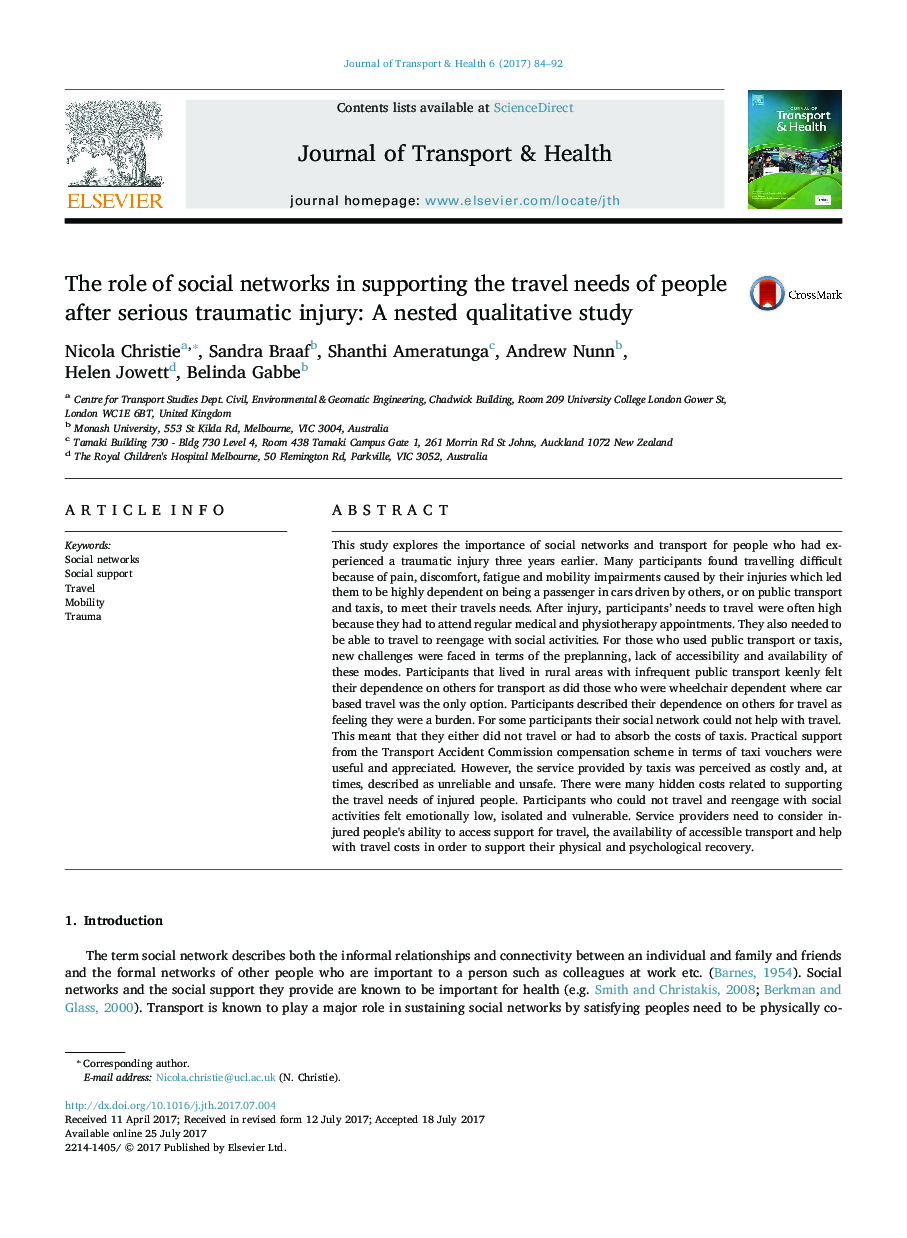| کد مقاله | کد نشریه | سال انتشار | مقاله انگلیسی | نسخه تمام متن |
|---|---|---|---|---|
| 5117646 | 1485455 | 2017 | 9 صفحه PDF | دانلود رایگان |
- Three years post injury many people who experienced major trauma often experienced changed mobility
- Lack of mobility after injury can lead to lack of social participation with negative impacts on wellbeing
- Many people after major trauma relied on their social networks to support their needs and desires to travel
- Barriers to mobility post injury included lack of social support, lack of public transport, the perception of poor service from taxis and inaccessible environments.
This study explores the importance of social networks and transport for people who had experienced a traumatic injury three years earlier. Many participants found travelling difficult because of pain, discomfort, fatigue and mobility impairments caused by their injuries which led them to be highly dependent on being a passenger in cars driven by others, or on public transport and taxis, to meet their travels needs. After injury, participants' needs to travel were often high because they had to attend regular medical and physiotherapy appointments. They also needed to be able to travel to reengage with social activities. For those who used public transport or taxis, new challenges were faced in terms of the preplanning, lack of accessibility and availability of these modes. Participants that lived in rural areas with infrequent public transport keenly felt their dependence on others for transport as did those who were wheelchair dependent where car based travel was the only option. Participants described their dependence on others for travel as feeling they were a burden. For some participants their social network could not help with travel. This meant that they either did not travel or had to absorb the costs of taxis. Practical support from the Transport Accident Commission compensation scheme in terms of taxi vouchers were useful and appreciated. However, the service provided by taxis was perceived as costly and, at times, described as unreliable and unsafe. There were many hidden costs related to supporting the travel needs of injured people. Participants who could not travel and reengage with social activities felt emotionally low, isolated and vulnerable. Service providers need to consider injured people's ability to access support for travel, the availability of accessible transport and help with travel costs in order to support their physical and psychological recovery.
Journal: Journal of Transport & Health - Volume 6, September 2017, Pages 84-92
